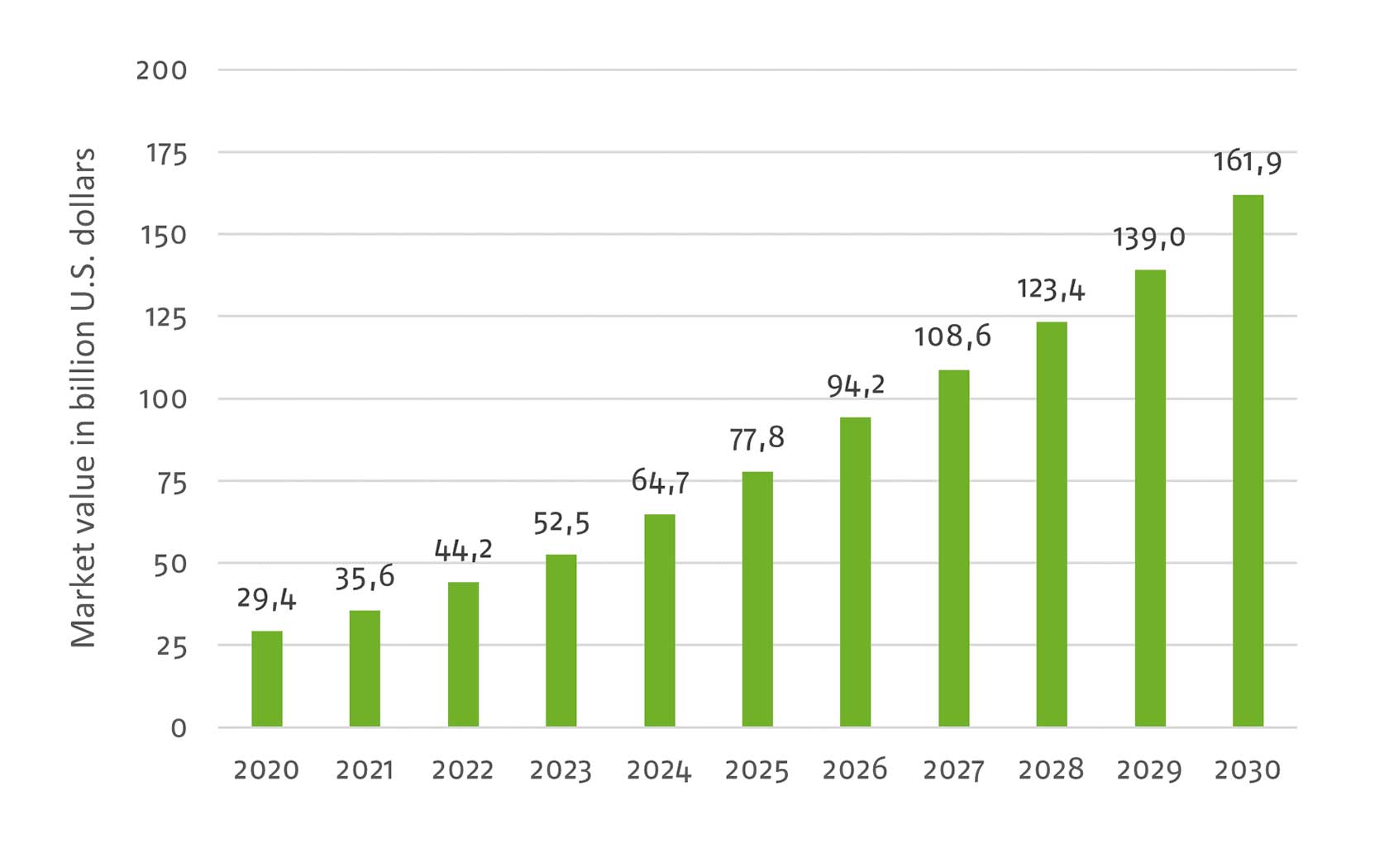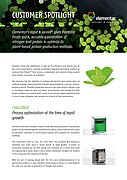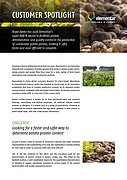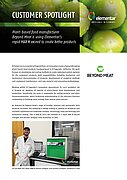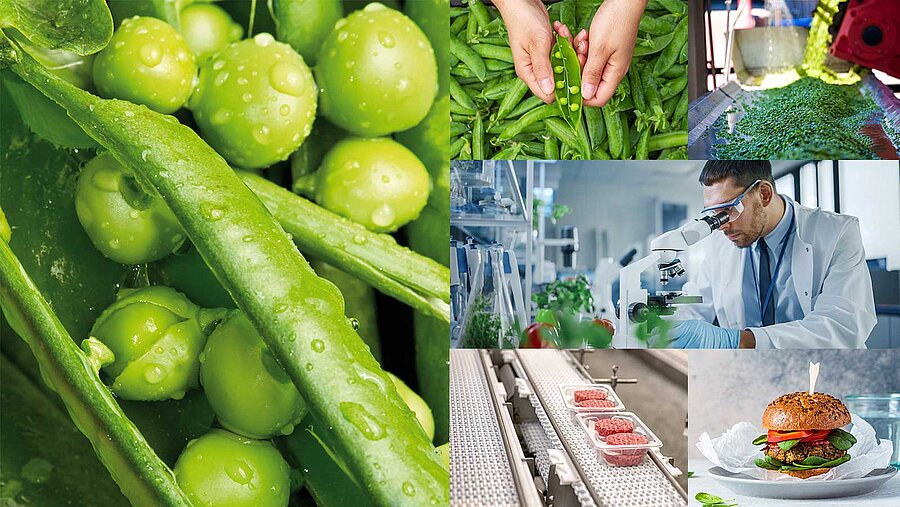The future of food is green
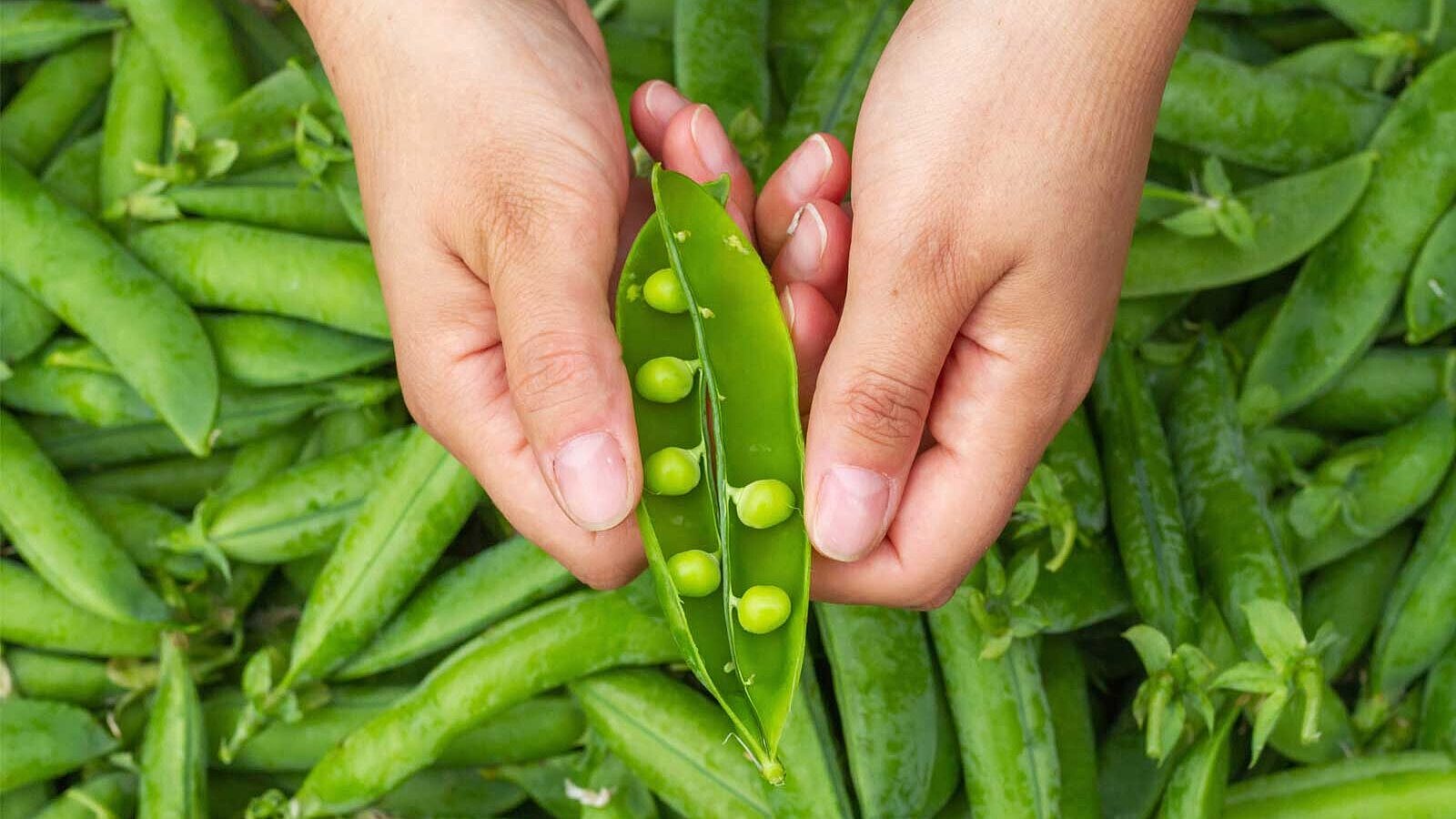
Plant proteins help feed the world: more climate-friendly and environmentally friendly than animal proteins - Food of the future depends on reliable protein analysis
The world's population continues to grow. In early 2023, more than 8 billion people will live on Earth. About 125 years ago - the beginning of instrumental elemental analysis - there were only 1.65 billion people on our planet. The challenge is to feed this growing population without depleting environmental resources. More than 100 years ago, technological innovations such as the Haber-Bosch process for producing ammonia made it possible to produce large quantities of artificial nitrate fertilizers to feed the world's growing population. However, conventional food production comes at a high price in terms of climate, water and land resources, as well as animal welfare. Alternative proteins, e.g. plant-based, as a substitute for meat or milk, can offer a way out of this dilemma. Even if the motto seems to be: "duckweed instead of beef steak", a protein mix of alternative and conventional proteins will prove effective. This will require various additional technologies in the "new food" sector, such as regenerative and cellular agriculture.
Alternative proteins come from plant sources (legumes, grains, oilseeds), animal sources (insects, animal cell cultures), and micro- and macroalgae or fungi. As nutrients, proteins are important for the development and maintenance of muscles, organs, skin and hair. Alternative proteins can replace or supplement animal proteins. It is no wonder that more and more companies around the world are focusing on the production and optimization of plant-based protein substitutes. The global market for plant-based foods is expected to reach $77.8 billion by 2025. The market is forecast to more than double by 2030 (see chart).
Quality control along the entire production chain
Reliable and efficient protein analysis is essential along the entire food production chain - from raw material to high-quality end product. On the one hand, nitrogen and protein determination depends on accuracy and precision with validated methods when measuring different sample types with different protein contents. On the other hand, the food and feed industry requires a high degree of automation, ease of use, high sample throughput with low time expenditure, and safe and environmentally friendly analysis. Determining the protein content is essential for pricing and maintaining quality of food. There are also labelling requirements for nutritional composition and finally protein content influences the properties (e.g. texture, mouthfeel, bite) of the products. For this reason, food technologists in research, development and quality control need to know exactly how much protein an ingredient contains. Nitrogen and protein analysis is therefore one of the most important analyses in food production.
Companies that extract proteins from plant sources can determine the efficiency of the extraction process by determining the protein content. If protein is lost in the process, it means lost revenue. Companies can optimize their production processes and maximize their protein output by continuously monitoring protein content.
The final step is to determine the protein content of the end product to meet food labeling requirements. The protein content must be displayed on the packaging to inform consumers of the nutritional value.
Some recent examples from the food industry show how rapidly the market for plant-based protein alternatives is developing and how nitrogen and protein analyzers are helping to shape the food of the future.
Plantible Foods
Plantible Foods was founded in 2018 and extracts plant protein from Lemna (duckweed), a highly sustainable and nutrient-rich aquatic plant. In terms of land and water requirements, this plant is considered one of the most efficient sources of protein in the world. The startup is developing a production platform to produce Rubi ProteinTM from duckweed. Since 2022, the company has been using one of our analyzers to meet the drastically increased demand for nitrogen and protein analysis. As a result, Plantible Foods is making its production process much more efficient and can easily meet its current annual requirement of around 12,000 analyses. (Read more: Customer Spotlight: Plantible Foods)
Royal Avebe
Royal Avebe is an international cooperative of potato growers founded in 1919 that today researches and develops sustainable concepts, food and products based on potato starch. In 2019, Avebe was selected as Royal Purveyor to the Court of the Netherlands and is now the market leader in potato proteins for use in food. The potato proteins can replace animal ingredients such as protein, gelatine or milk proteins in plant-based meat and dairy alternatives or confectionery. Since switching to one of our nitrogen and protein analyzers, Avebe has been able to achieve very accurate protein measurements, increase efficiency and reduce the use of hazardous and environmentally harmful chemicals. (Read more: Customer Spotlight: AVEBE)
Beyond Meat
Beyond Meat is a US-based plant-based meat products company. The company's analytical laboratory focuses on studying all aspects of plant-based meat development and production. In particular, it focuses on testing proteins and other biomacromolecules and understanding the structure-function relationship in the construction of meat analogs from various plant sources. To this end, the lab invested in one of our analyzers in 2019 to perform nitrogen and protein analysis, which enables rapid assessment of protein content in various materials and allows the team to quickly evaluate ingredients and create prototypes for new products and formulations. As a result, Beyond Meat is able to more easily assess the protein content of raw materials based on their origin and processing method. (Learn more: Customer Spotlight: Beyond Meat)
Well equipped for the future
When it comes to advances in food production and the transition from animal to plant proteins in the food chain, we support agricultural and food companies worldwide in the production of high-quality food. Nitrogen and protein analyzers that are fast, robust, and precise help to develop new products, reliably monitor food quality and production, and optimize production processes. As a result, food manufacturers specializing in alternative proteins can achieve maximum efficiency in the laboratory and grow rapidly with the market.
Find out more
Learn how our customers have overcome their analytical challenges
Download our Customer Spotlights to learn how companies in the plant-based protein industry have overcome their analytical challenges after working with our nitrogen and protein analyzers.
Do not miss any new articles
NEWSLETTER
We will constantly publish new blog articles. Register for our newsletter to stay up-to-date and get informed about latest blog articles, news and trends.

